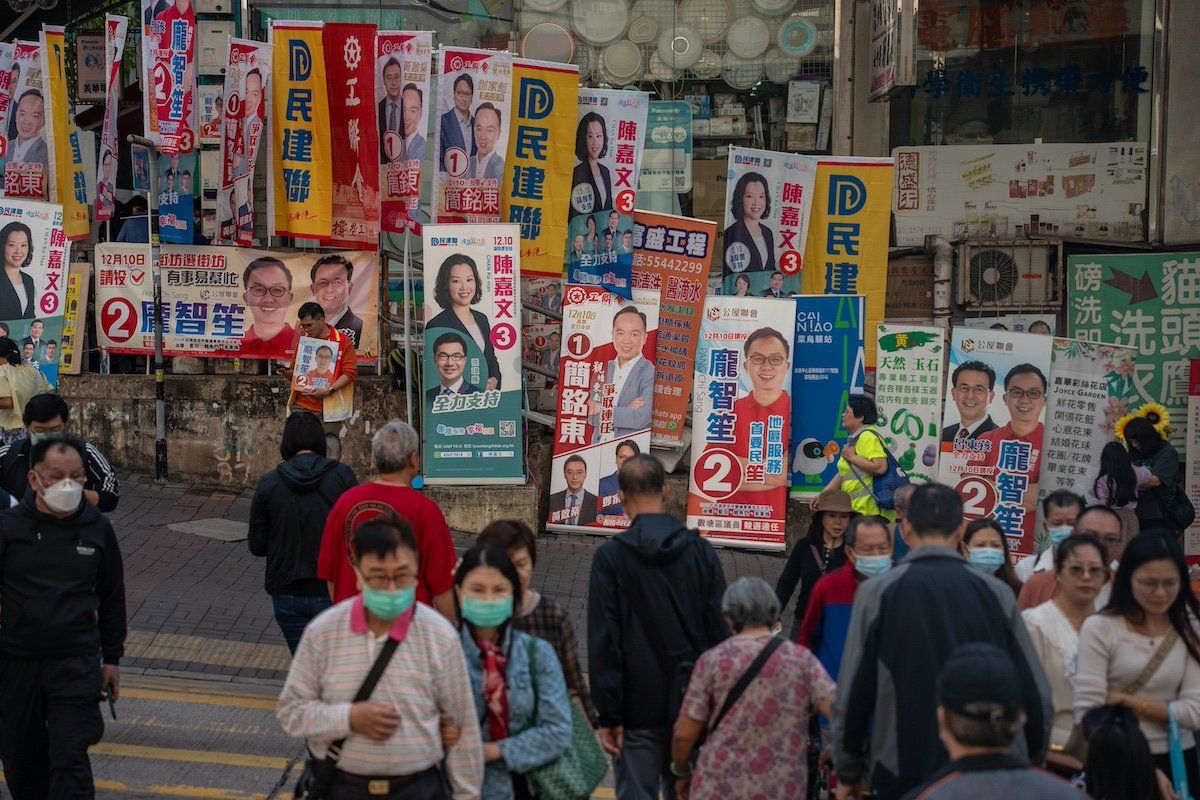27.5: A district council election held in Hong Kong amid 2019’s surge in anti-government protests set a record for turnout with 71.2% of registered voters casting a ballot. But on Sunday, just 27.5% turned up for the first vote since Beijing passed new restrictions on who is allowed to run for office.
64: The UN Office for the Coordination of Humanitarian Affairs said Monday that a funding shortfall will cut the number of people who can expect the agency’s help in 2024 by 64 million. With one-third less funding in 2023 than hoped for, investments in food, water, and health projects will benefit 181 million people rather than the hoped-for 245 million.
600: In Israel, a country with strict firearm control laws, gun license applications have increased 600% since the Oct. 7 Hamas attacks. In recent weeks, the government has relaxed gun ownership rules, speeding up applications and supplying rifles to new volunteer rapid-response units.
128,000: Large numbers of Iranians have taken to social media to post videos of themselves dancing as a way of protesting the censorship of a video of a dancing 70-year-old man known as “Sadegh Booghi.” Authorities labeled Sadegh’s move-busting videos, which had reportedly earned him 128,00 followers, as “criminal content."
